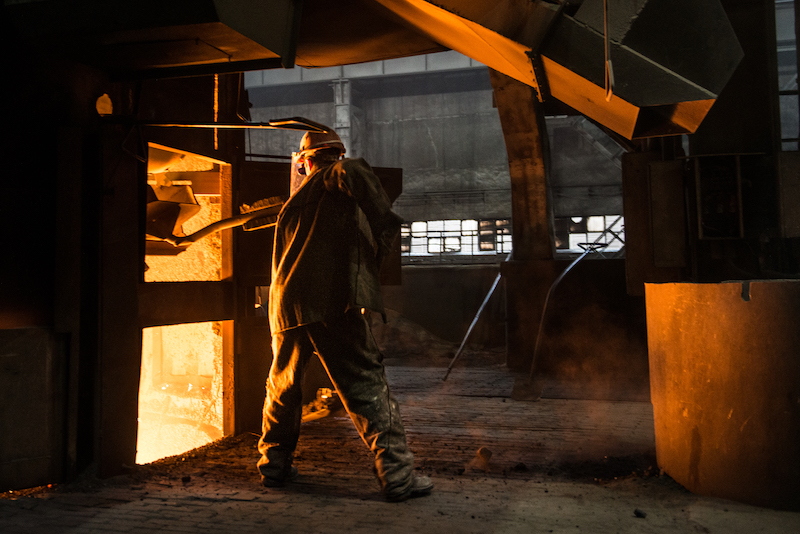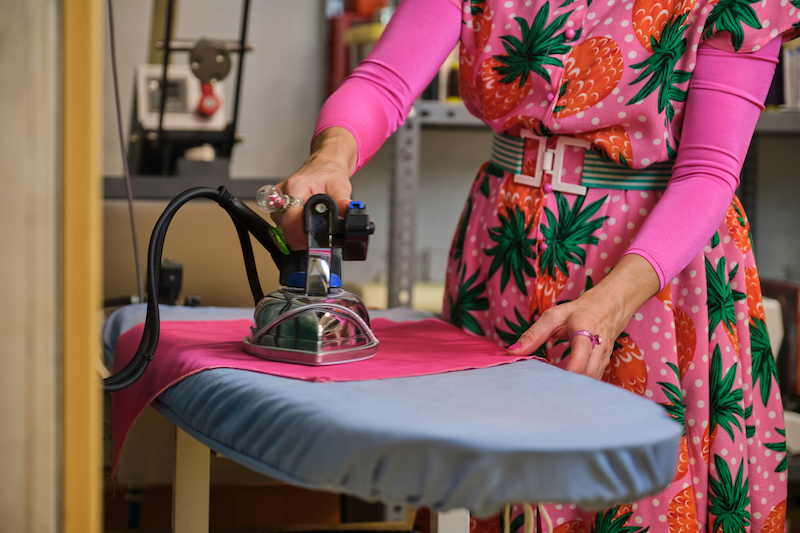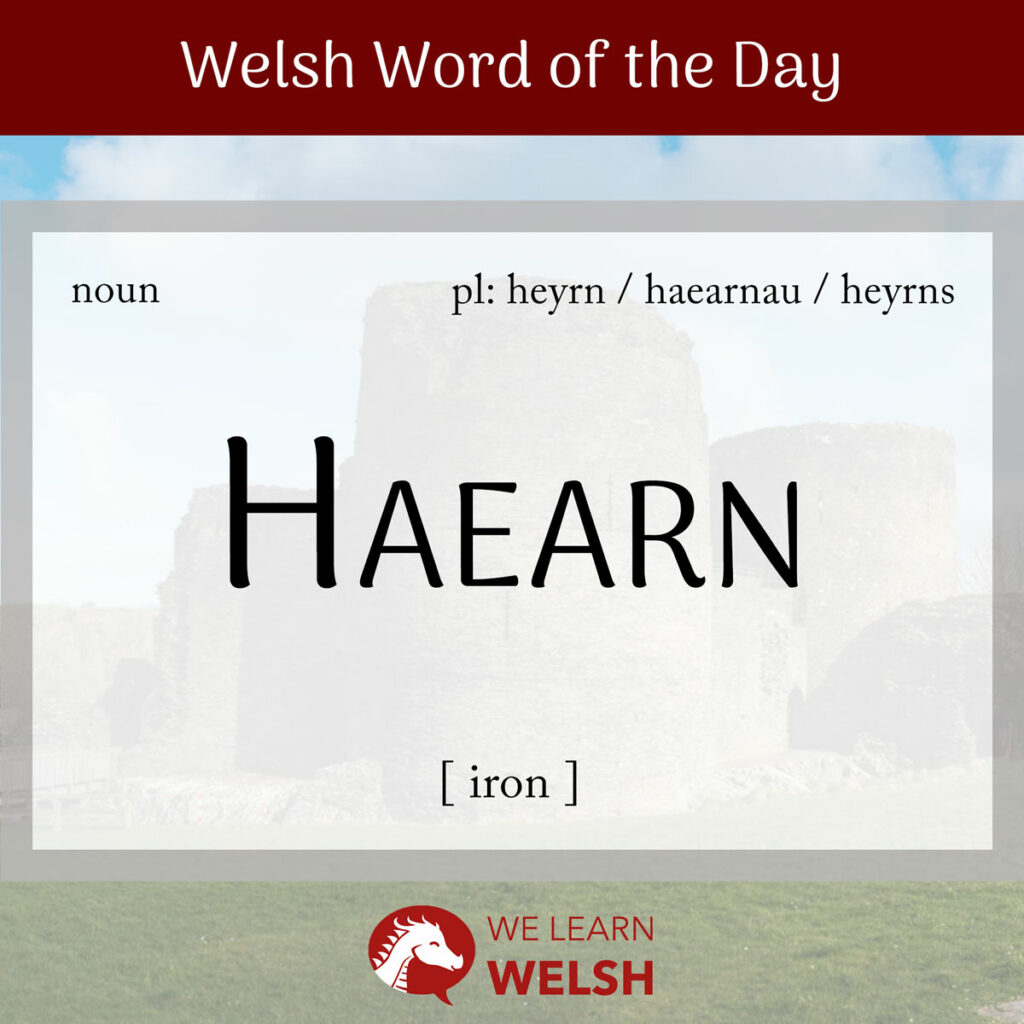It might not be the most thrilling word in Welsh, but haearn (iron) played a truly important role in shaping Wales during the Chwyldro Diwydiannol (Industrial Revolution). Let’s explore its etymology, uses and how it helped forge a nation!
haearn
iron
According to the Geiriadur Prifysgol Cymru, the word comes from the Celtic form isarnon, which probably derives from the Proto-Celtic root isəro- meaning “strong, sacred, or divine.” This, in turn, is thought to stem from the Proto-Indo-European root eis-, which conveys the idea of “moving with force” or “pushing.” Interestingly, this root is also linked to the Latin ira, meaning anger, and even the English iron itself.
If you’re worried about having to mutate this word, don’t be – haearn begins with the letter H, meaning that it isn’t subject to any of the three mutations.
But before you breathe a sigh of relief, I must warn you that this masculine noun does have three possible plural forms: heyrn, haearnau and heryns. Of the three, the first is the most widespread. In fact, you can see it in the idiomatic expression:
bod â gormod o heyrn(s) yn (y) tân
to have too many iron(s) in (the) fire
When you think of industry in Cymru, what springs to mind first? Probably good old glo (coal), right? But the truth is, haearn (iron) played an equally important role in transforming Wales from a rural, agricultural nation into one of the world’s first gwledydd diwydiannol (industrial countries). The abundance of natural resources, known as adnoddau naturiol in Welsh, in the South Wales Valleys – namely mwyn haearn (iron ore), glo (coal), and calchfaen (limestone) – attracted entrepreneurs who built massive ironworks in places like Merthyr Tydfil, Dowlais, and Blaenavon.
By the 1830s, the diwydiant haearn (iron industry) was well established, with South Wales producing half of Britain’s iron and towns such as Tredegar springing up around the works. Would you believe that, at its peak, Merthyr’s iron industry was producing as much iron as 25% of the entire Unol Daleithiau (United States)? Mae’n wir – it’s true! In fact, around 40,000 people were employed in the industry in Monmouthshire and east Glamorgan alone. (Source: Hwb – Welsh Government)
Roedd y diwydiant haearn yn hynod bwysig yn Ne Cymru.
The iron industry was extremely important in South Wales.
Haearn was essential for the construction of the following objects:
- offer adeilad = building tools
- peiriannau = machines
- arfau = arms
- rheilffyrdd = railways
- llongau = ships
While glo (coal) would later become the dominant industry, haearn was the catalyst that kickstarted industrial change in Wales. Can you imagine where we’d be without it today?

In addition to referring to the metel (metal) and the elfen gemegol (chemical element), haearn is also used to refer to that singular household object everyone loathes – the smoothing iron. Usually people shorten it to haearn, just as we do with the English equivalent, but there is nothing wrong with using the complete term: haearn smwdd(i)o. Another synonym for smwdd(i)o is stilo, which is a dialectal term from the South.
Ble mae’r haearn? Mae angen i mi wneud rhywfaint o smwddio.
Where is the iron? I need to do some ironing.
Below are a few additional terms featuring haearn that might come in handy in everyday conversation, especially if you work in specific industries that require the use of this metal.
- y Llen Haearn = the Iron Curtain
- yr Oes Haearn = the Iron Age
- haearn bwrw = cast iron
- haearn nod(i) = branding iron
- haearn gyr(ru) = wrought iron
- haearn gwrymiog = corrugated iron
- haearn canhwyllau = candle snuffer
- Y Dyn Haearn = Iron Man (my son wouldn’t have been happy if I’d left this one out!)

Before we wrap up, let’s take a quick look at a few idiomatic expressions featuring haearn. One of the most well-known is cura’r haearn tra fo’n / bo’n boeth, which corresponds to the English phrase strike while the iron is hot. Another, less common expression is haearn a hoga haearn – literally “iron sharpens iron” – meaning that it takes strength or skill to challenge and improve. And if someone is said to have haearn yn eu gwaed (“iron in their blood”), it means they possess unyielding strength and determination.
Did you know that…?
Sometimes haearn is used more broadly to refer to weapons made from iron or steel, such as a sword, spear or lance, or even iron armour.

